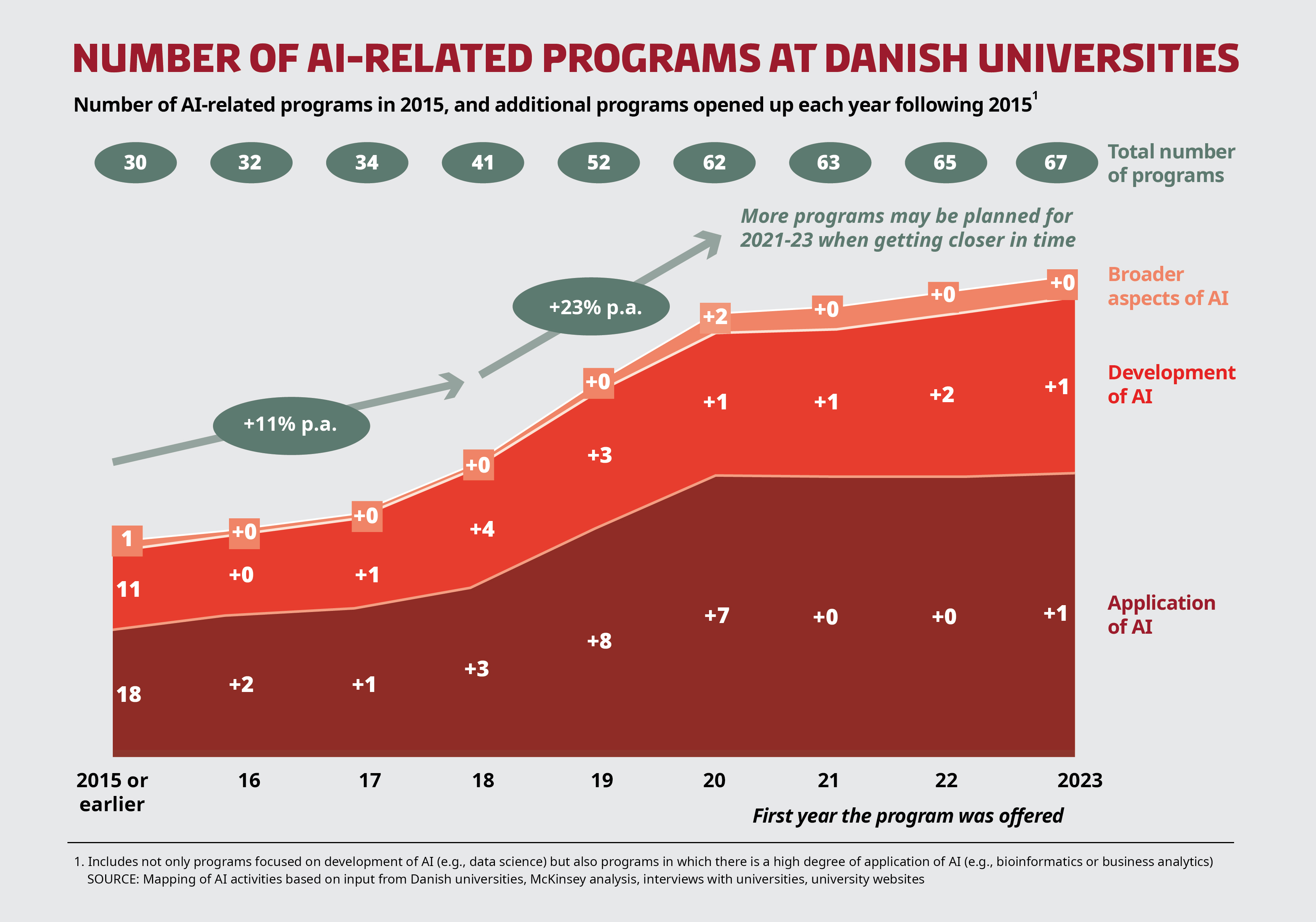Denmark sets out to overcome the AI talent shortage
According to research from the multinational professional network, PricewaterhouseCoopers (PwC), global GDP could be up to 14% higher in 2030 because of AI. This is the equivalent to additional $15.7 trillion, which makes AI the largest commercial opportunity of today. To seize this opportunity businesses need highly educated specialists especially within STEM (Science, Technology, Engineering and Mathematics), which can be a challenge to find.
Denmark strives to overcome this challenge with the introduction of a technology pact. This aims to make sure that companies, which are doing business in Denmark, in 10 years will have no significant challenges recruiting the talent need for their businesses to thrive.
Denmark takes the lead in AI talent supply
To meet industry’s increasing need for skills of STEM professionals, the Danish government has launched a large initiative called the Danish Technology Pact. The aim is to secure that the Danish workforce’s STEM competences become among Europe’s best and that Denmark hereby is able to meet the growing industry demand.
Specifically, the Technology Pact sets out to increase the number of candidates selecting STEM courses during their education with 20% by 2025. Furthermore, the pact strives to ensure that companies will not experience any extensive recruitment challenges for STEM competences in 10 years.
Offering competences that match industry needs
During 2009-2018, the number of students admitted to programmes within tech in Denmark increased with 50%. Furthermore, Denmark scores well also above the OECD average, if one looks at the number of students in the age group between 18-40 years who completes a STEM education.
In recent years, study programmes within the STEM fields have thus been both adjusted, re-developed and launched in Denmark. These include BSc and MSc programmes in Data Science, Algorithms, AI, IT & Cognition and Human-Computer Interaction (HCI).
What characterises Danish study programmes is that students not only work with large data sets and algorithms but also dedicates time to discuss the ethical choices, which are seen as an integrated part of the work with designing and programming algorithms. Soon, new graduates from these programmes will enter the Danish labour market and introduce a responsible and ethical approach to technology development.
Key takeaways from the technology pact
More will pursue STEM training
- + 20% more Danes will complete a higher education in STEM within the next 10 years.
- + 20% more Danes will complete vocational education and training (VET) within the next 10 years.
More will apply STEM in their work
- The Danish workforce's STEM competences of must be among the best in Europe.
- The Danes' ability to solve problems with IT must be on a par with the competence level of other Nordic countries.
- In 10 years from now, there should be no extensive recruitment challenges for STEM competencies.
Learn more about the Technology Pact in Denmark’s Digital Growth Strategy.

